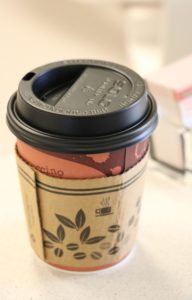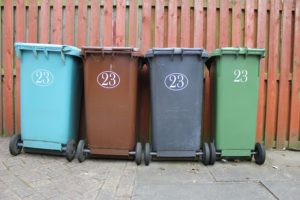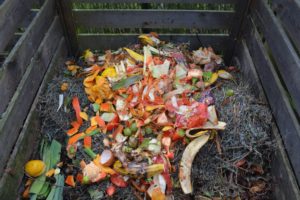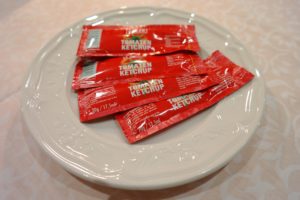The confusing case of the compostable cups
2018 saw a lot of discussion around the number of disposable coffee cups that Irish consumers use. It won’t have come as a surprise to most people that the number is on the rise. As more and more coffee shops open around the country, the volume of cups sold and dumped keeps increasing. Care to take a guess how many? A Recycling List Ireland study found that around 200 million are dumped in Ireland each year. That’s 22,000 per day!
 While most cups are labelled as recyclable, in reality they can’t be recycled in Ireland. The cups might look like they are made of cardboard but they are lined with plastic to stop them leaking. This is very difficult to recycle as the two layers are fused together. In addition, used coffee cups don’t meet the criteria of “clean and dry recyclables”. Unless you thoroughly rinse and dry them first, they will contaminate other items in a recycling bin.
While most cups are labelled as recyclable, in reality they can’t be recycled in Ireland. The cups might look like they are made of cardboard but they are lined with plastic to stop them leaking. This is very difficult to recycle as the two layers are fused together. In addition, used coffee cups don’t meet the criteria of “clean and dry recyclables”. Unless you thoroughly rinse and dry them first, they will contaminate other items in a recycling bin.
The introduction of compostable cups (and sometimes lids) by several large coffee retailers seemed like a positive response to the issue. Companies like Insomnia introduced compostable cups while Frank and Honest now use compostable cups AND lids. This can only be a good thing, right? Unfortunately it’s not as simple as it seems.
Where can I compost this cup?
 While compostable cups are labelled as such, they do not inform customers how to dispose of them. In reality, it’s not as straightforward as you’d think. The cups and lids are designed to be composted in commercial composting facilities. If you have a brown bin at home or composting bin at work, those are the perfect place to put them. But if you’re on the go then the chances are that you won’t have access to a bin for food and compostable waste.
While compostable cups are labelled as such, they do not inform customers how to dispose of them. In reality, it’s not as straightforward as you’d think. The cups and lids are designed to be composted in commercial composting facilities. If you have a brown bin at home or composting bin at work, those are the perfect place to put them. But if you’re on the go then the chances are that you won’t have access to a bin for food and compostable waste.
What should you do, then? Unfortunately there is no perfect answer. Putting it in a bin for recyclables means that you are contaminating the other contents (not least because the cup will probably have some coffee stains). And contrary to what you might think, compostable cups don’t really break down properly in landfill sites so tossing them in the standard bin isn’t ideal either. However, this is the best place to put them for now.
What about my compost bin at home?
The jury is still out on composting these cups at home. Vegware’s FAQ section (they make the lids Frank and Honest use) states the following: Compostable disposables are designed to be recycled in an industrial composting facility together with food waste.
The page has a lot of helpful info on what they refer to as compostable disposables, including a link to a study looking at how well similar products broke down in a hot compost bin system: https://www.hotbincomposting.com/biodegradable-food-packaging.html
 If you do decide to try it, we’d recommend cutting up the packaging first. This will increase the surface area available to bacteria which speeds up the composting process. Mix well with other waste in your bin.
If you do decide to try it, we’d recommend cutting up the packaging first. This will increase the surface area available to bacteria which speeds up the composting process. Mix well with other waste in your bin.
As it’s estimated that it can take 12 months for coffee cups to break down in commercial facilities, it’s likely it would take longer in a traditional home compost bin. If you’ve ever tried composting egg shells you’ll know that not all items break down at the same rate. If you have the patience, we don’t know of any reason not to do it yourself with the odd coffee cup.
We haven’t been able to find any information or studies on the success of home composting these coffee cups. If you’ve tried it, we’d love to hear how you got on!
Compostable waste is still waste
 Compostable cups, like recyclable items in general, help to disguise one important point. All waste is waste, even if it doesn’t end up in landfill. These items require resources to produce and transport, and resources will be required to deal with them at the end of their lives. While it’s great to see efforts being made to avoid single-use items, as consumers we need to strive to avoid short-life items in general.
Compostable cups, like recyclable items in general, help to disguise one important point. All waste is waste, even if it doesn’t end up in landfill. These items require resources to produce and transport, and resources will be required to deal with them at the end of their lives. While it’s great to see efforts being made to avoid single-use items, as consumers we need to strive to avoid short-life items in general.
We can do this by being more conscious in our choices. Refuse the ten sachets of ketchup you won’t use, keep a fork in your car or bag for eating on the run, bring your reusable cup or water bottle everywhere. You might find it takes a while to get in the habit but you’ll be amazed how quickly it becomes routine. It’s up to all of us to make a difference!
